If you are planning to stay in Singapore for an extended period of time, you may consider applying for a credit card issued by a local bank. Unfortunately, credit cards in Singapore tend to have higher annual income requirements for foreigners or expatriates than for Singaporean citizens. Other things to consider are how long you will be staying in the country. If it is only for a few years, a credit card that is supported internationally, as opposed to exclusive to local transactions, is more attractive. Here is our recommended list.

Antonio Guillem/shutterstock.com
Best Miles Card for Low-Income Foreigners: DBS Altitude Visa Card
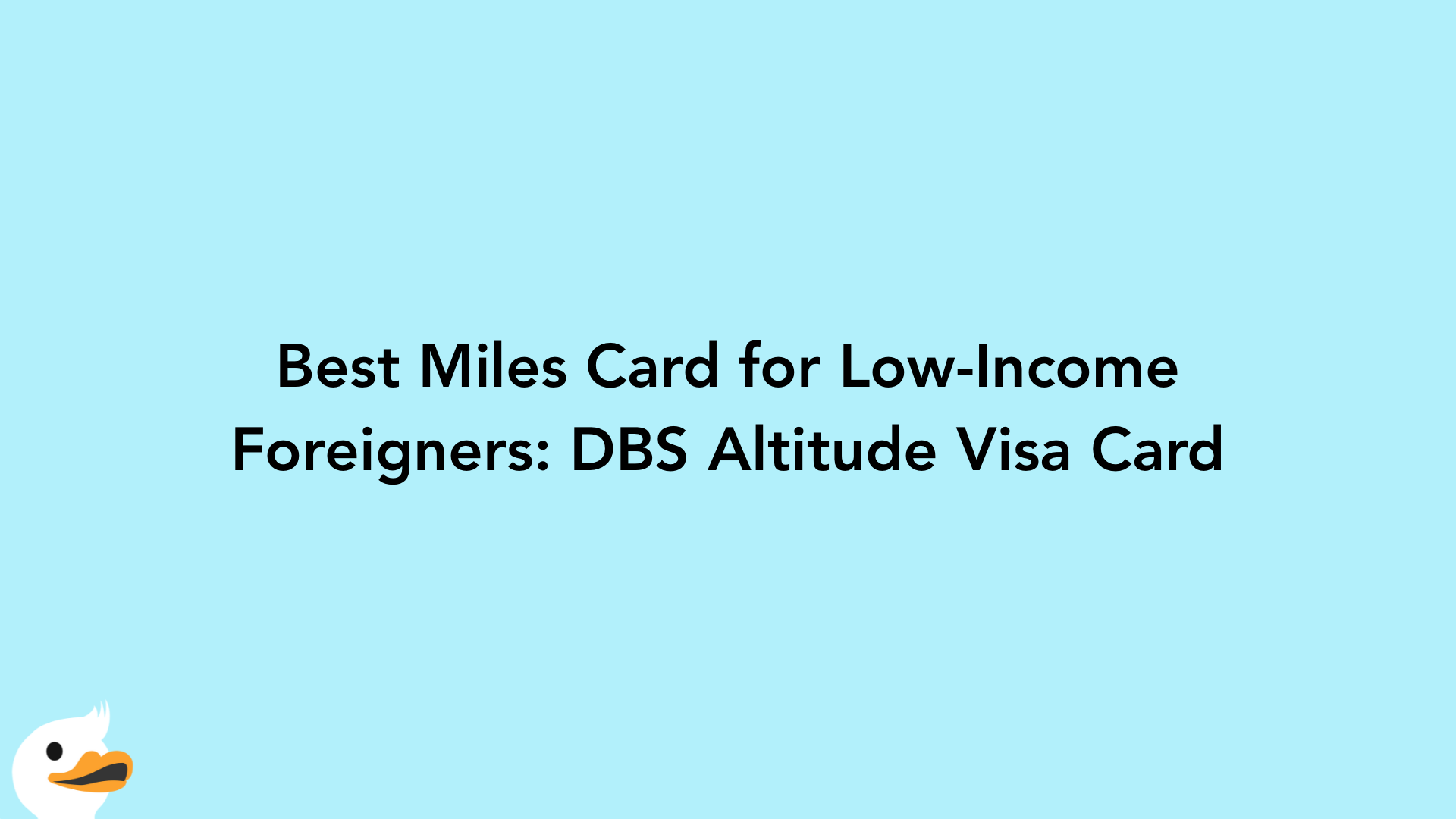
The DBS Altitude Visa Card is the best no annual fee miles credit card. You can earn 1.2 miles for every S$1 spent in Singapore, 2 miles for every S$1 spent overseas and 3 miles for every S$1 spent on online flight and hotel transactions. This card also comes with up to S$1 million travel accident insurance coverage and a 24-hour Butler Service anywhere in the world. I had to look up this perk for some clarification as to what a “butler service” is. DBS’s Butler Service is another name for a travel concierge. They provide assistance to plan your vacation, organize dining reservations, and arrange airport transfer. As a result, this card is great for travelers. Plus, your miles never expire.
This card has one of the lower annual minimum income requirements of S$45,000 for a foreigner. The card has an annual fee of S$192.60 but is waived if you spend more than S$2,000 a month. Otherwise, you would get 10,000 bonus miles when you pay the annual fee.
Best Cash Back Card for Low-Income Foreigners: HSBC Visa Platinum Credit Card
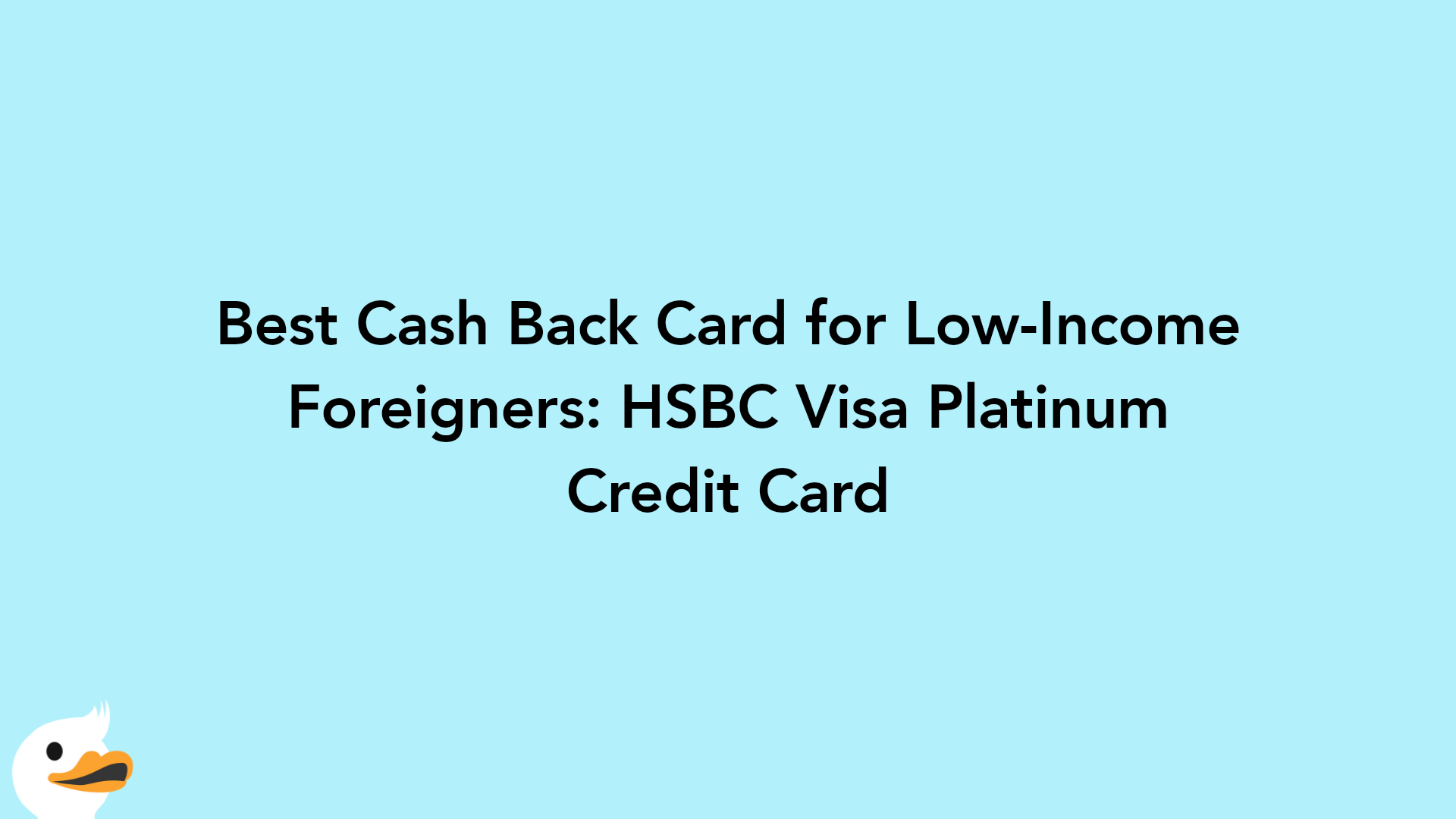
Here is another credit card with a low-income requirement for foreigners. The HSBC Visa Platinum Credit Card earns 5% cashback on groceries, dining, and fuel, in addition to up to 16% off on petrol at Shell and Caltex. HSBC boasts that this is a family-friendly card because your kids can now enjoy free movies, meals, and trips, on top of other family offers at their partners.
This card has a S$40,000 minimum annual income requirement for expatriates. The annual fee is S$192.60, which is waived for two years. If you spend a minimum of S$12,500 annual, the subsequent annual fees are also waived.
Best Miles Card for High-Income Foreigners: Standard Chartered Visa Infinite Card
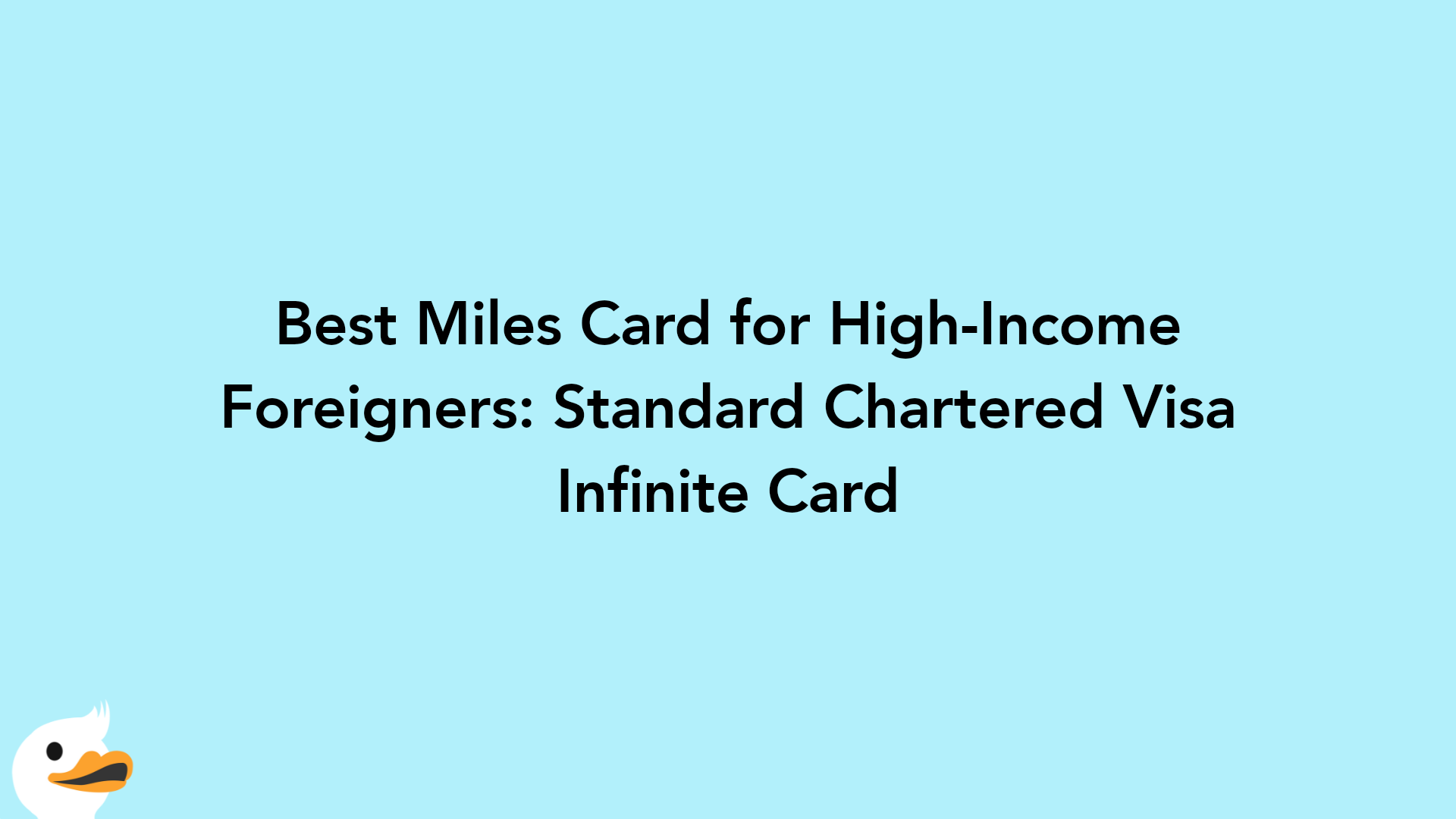
The Standard Chartered Visa Infinite Card is for affluent expats who want to combine mile rewards and some exclusive perks. You can earn 1.4 miles for every S$1 spent locally and 3 miles for every S$1 spent overseas. This card comes with up to six complimentary visits each year to any Priority Pass airport lounges. Moreover, this card offers up to S$1 million travel insurance coverage. Feel free to indulge in high-end travel perks and discounts at Banyan Tree Hotels and Resorts, YTL Hotels, Fullerton Hotels, and selected spas and golf clubs in the Asia Pacific region.
This card has an annual fee of S$588.60 with no option for a fee waiver. The minimum annual income for foreigners with employment passes is S$60,000. Singaporeans and Permanent Residents can enjoy this card with an annual minimum income of S$30,000. Everyone else must have an annual minimum income of S$150,000.
Best Cash Back Card for High-Income Foreigners: HSBC Advance Visa Credit Card
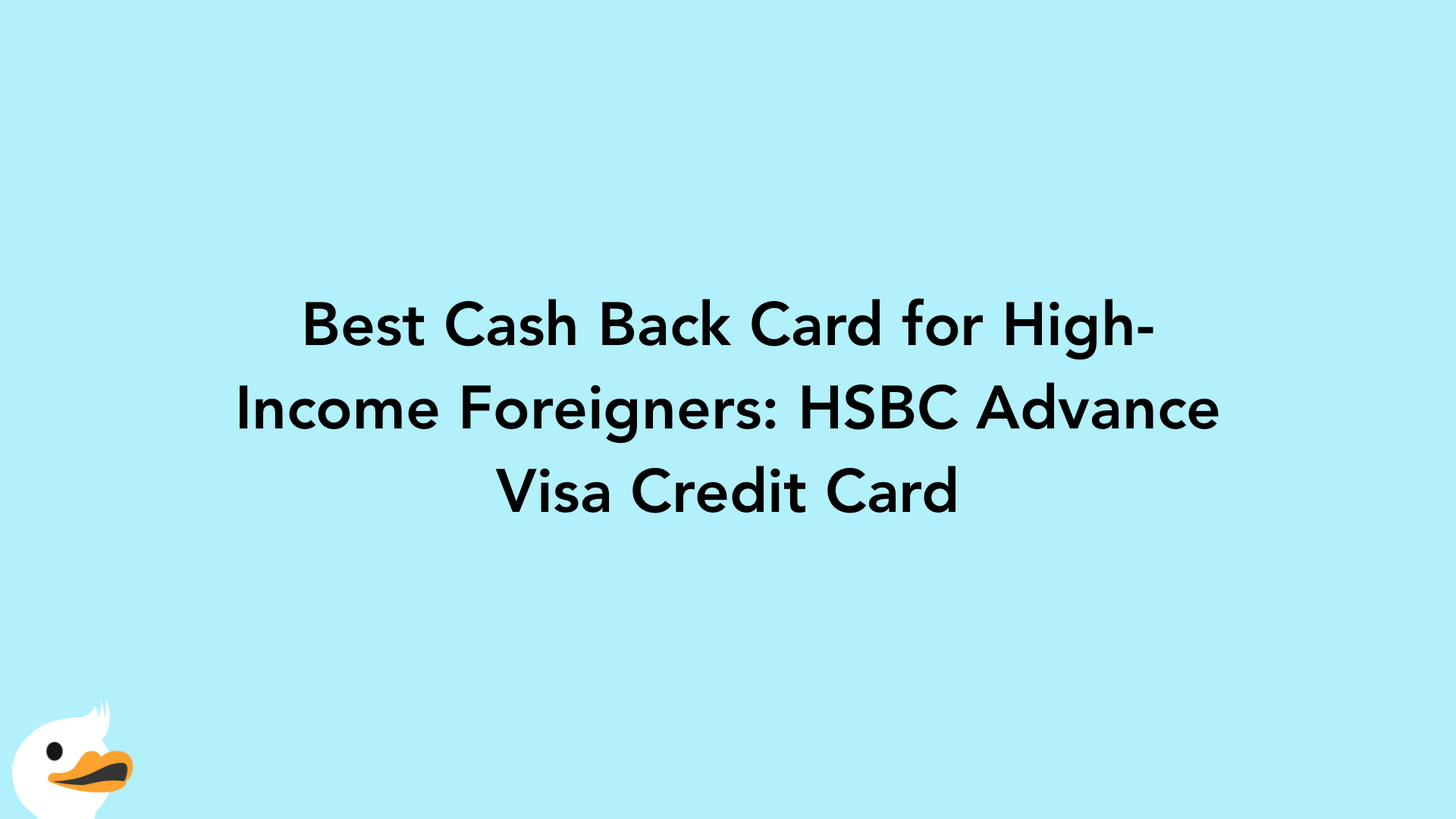
Here is another credit card for wealthy expats with the purpose of getting as much cash back as possible. This is even more ideal for those who already bank with HSBC and have the HSBC Advance savings account. If you have S$30,000 in cash savings or S$3,500 of monthly salary, you get a flat rate cashback of up to 3.5%. Like most cash back cards, there is a monthly cap. However, this card offers a higher rebate cap of S$125. All other non-Advance cardholders only get 1.5% cash back.
To be eligible for this card, foreigners need a minimum income of S$40,000 a year. However, to earn the maximum cash back, you will need at least S$3,500 of monthly salary. Therefore, in reality, an expat would need to make S$42,000 annually to maximize this card’s benefits.
Unlimited Cashback Card for High Spenders: American Express True Cashback Card
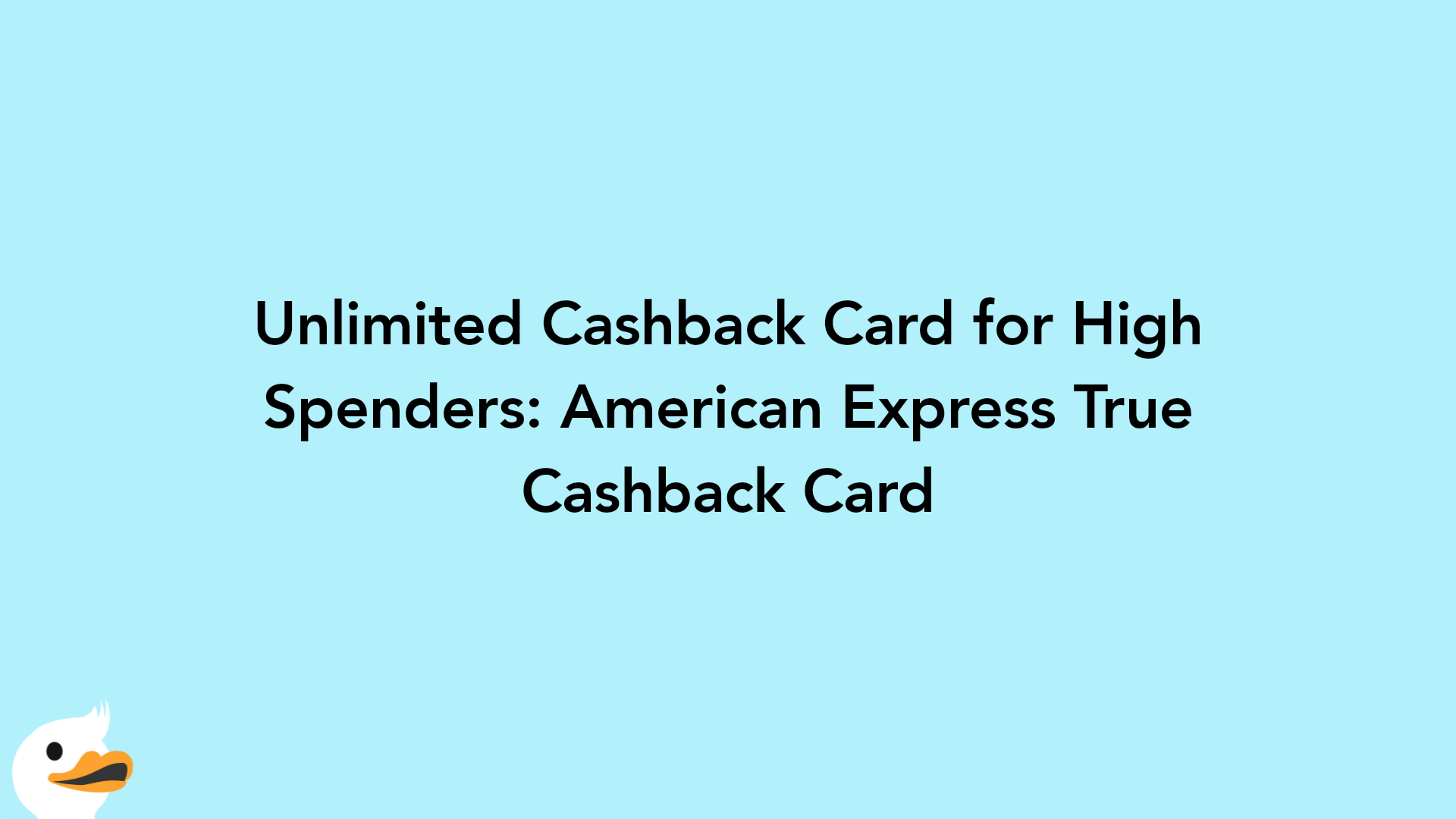
If you do not have an HSBC Advance Savings account, the American Express True Cashback Card may be appealing to you. This card is designed for high spenders. Therefore, logically, if you were a high spender, you also would have a high income. This card offers unlimited cash back, which is rare. Although, the cash back earn rate is a bit lower than other cards. You earn 1.5% cash back on everything you spend, including local transactions in Singapore as well as overseas purchases. Along with this, you get access to American Express membership benefits, which include offers from their range of retail, travel, dining and entertainment partners, exclusive dining privileges all around the world, as well as travel inconvenience and travel accident insurances.
Foreigners will need a minimum income of over S$60,000 per annum. The annual fee is S$171.20, which is waived for the first year. The first two Supplementary Card fees are permanently waived. However, each subsequent Supplementary Card has an annual fee of S$85.60.
Credit Card Eligibility
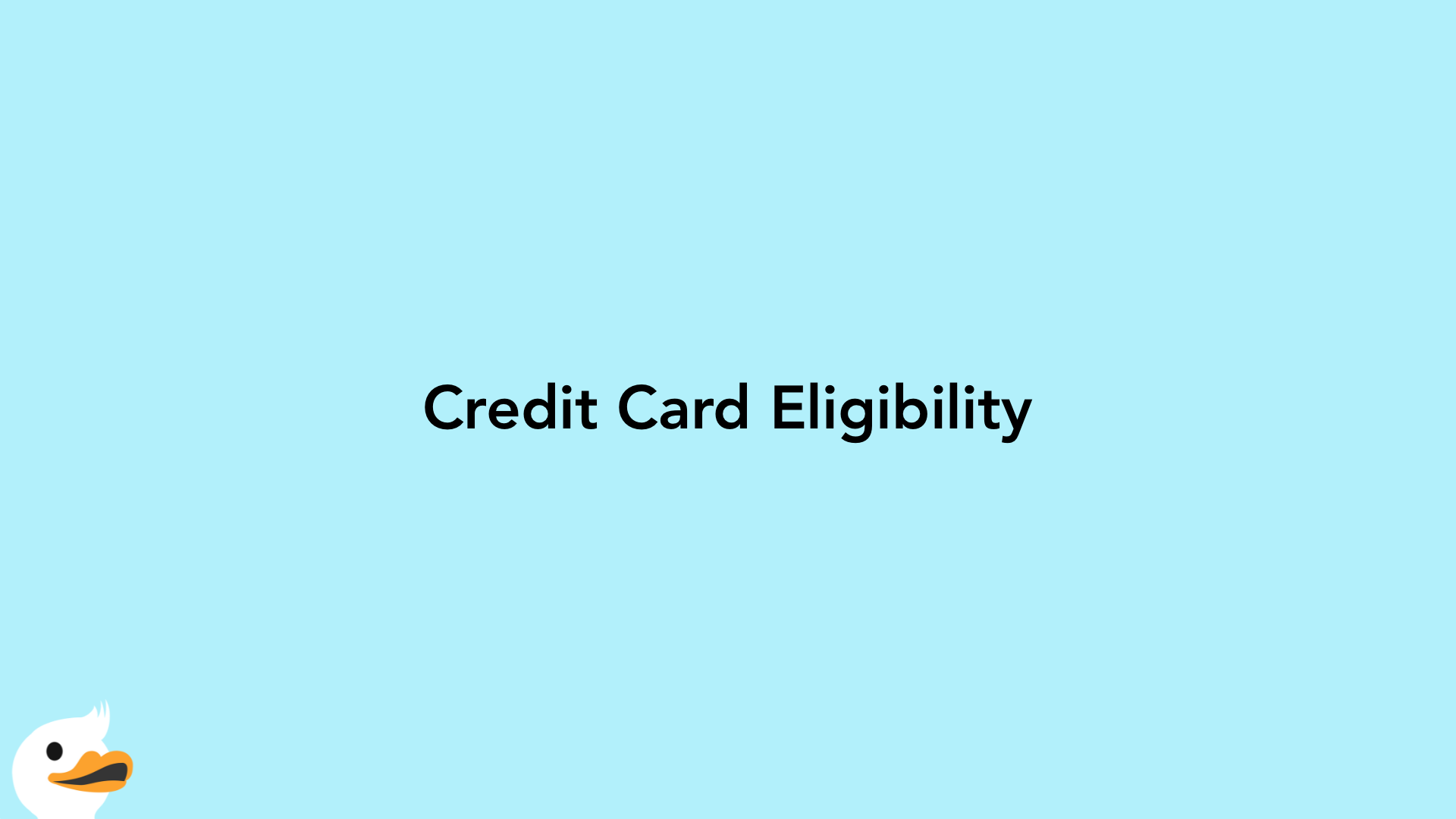
Besides meeting the annual minimum income requirement, you will still need to provide some documentation to apply. Of course, these criteria will differ from bank to bank and from card to card. In general, you will need:
1. Passport
Your passport, valid for at least 6 months, is probably the first thing the bank will ask from you. Quite reasonably, the bank wants documentation of your ability to flee the country and abandon your credit responsibilities.
2. Employment Pass
Depending on how strict the bank is, they will want to see your employment pass. The Standard Chartered bank specifically requests that foreigners must be holders of P1, P2 or Q type Singapore Employment Passes. Furthermore, Q Pass holders must have a minimum one-year validity remaining on their passes.
3. Computerized Payslips for the Last 3 Months
As part of your proof of income, the bank will want to see your payslips. This will also demonstrate that you have been employed at the same place for at least 3 months.
4. Latest Income Tax Notice of Assessment
Similar to your payslips, the bank will want to see your proof of income and financial status. You will need to produce your latest Income Tax Notice of Assessment.
5. Employment Letter or Proof of Employment
The purpose of an employment letter is to verify that you have roots in the country in addition to financial means. The bank wants to know where you are working and for whom.
6. Copy of Recent Utility Bill with Residential Address
One of the most difficult things with approving foreigners is proving that you will not simply flee the country. A utility bill, with a residential address and your name, helps show that you have set up a home, instead of jumping from hostel to hostel.
Final Thoughts

If you have been assigned to stay in Singapore for a longer period of time because of business, school, or simply as part of a new travel adventure, you may consider setting down a few roots. After you have secured a place to live and employment, you may consider a credit card from a local bank. This does not have to be restrictive to Singapore only. Most of these credit cards offer the ability to earn cash back internationally. This means that when you visit home or travel around the country, your credit card will continue to reward you.


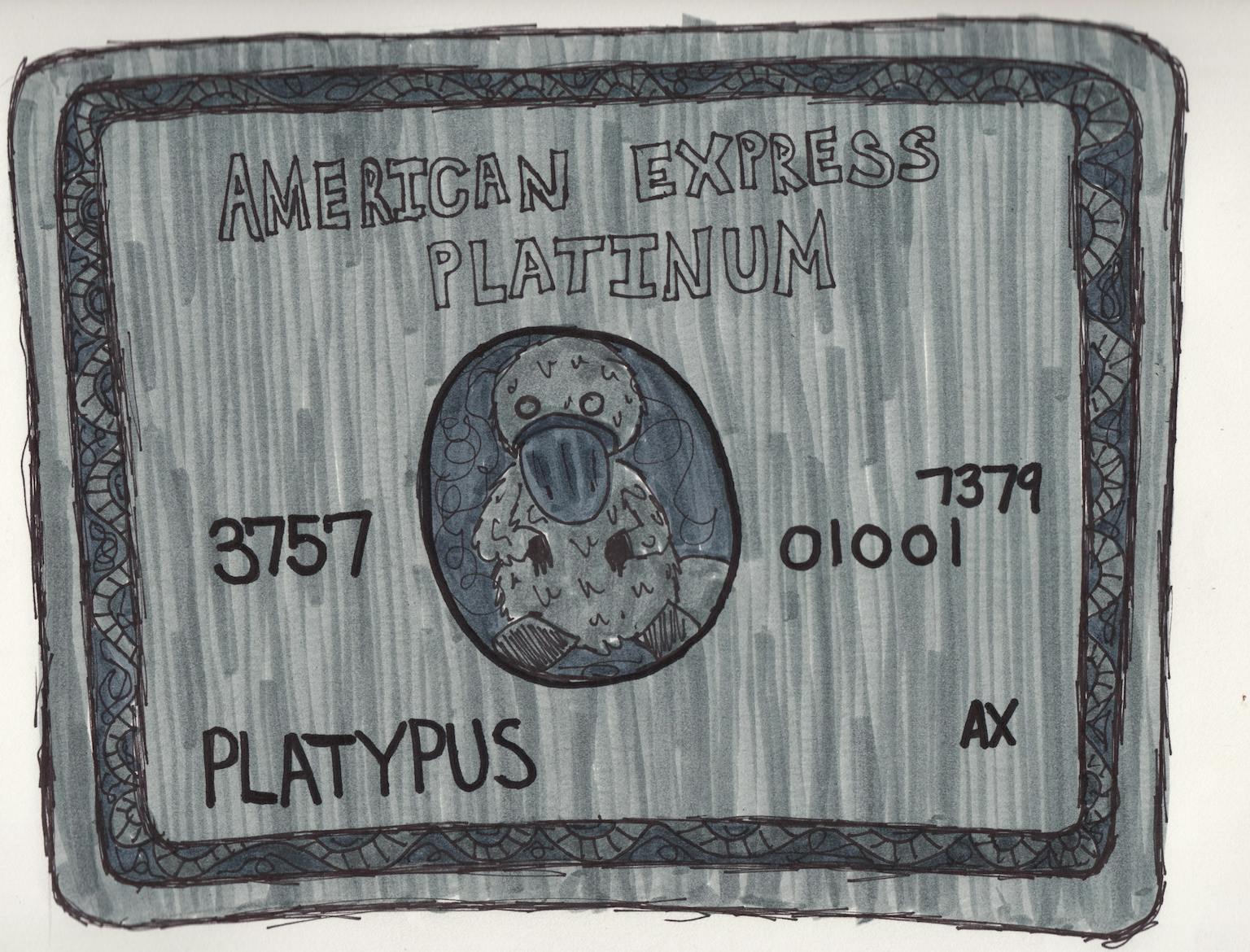



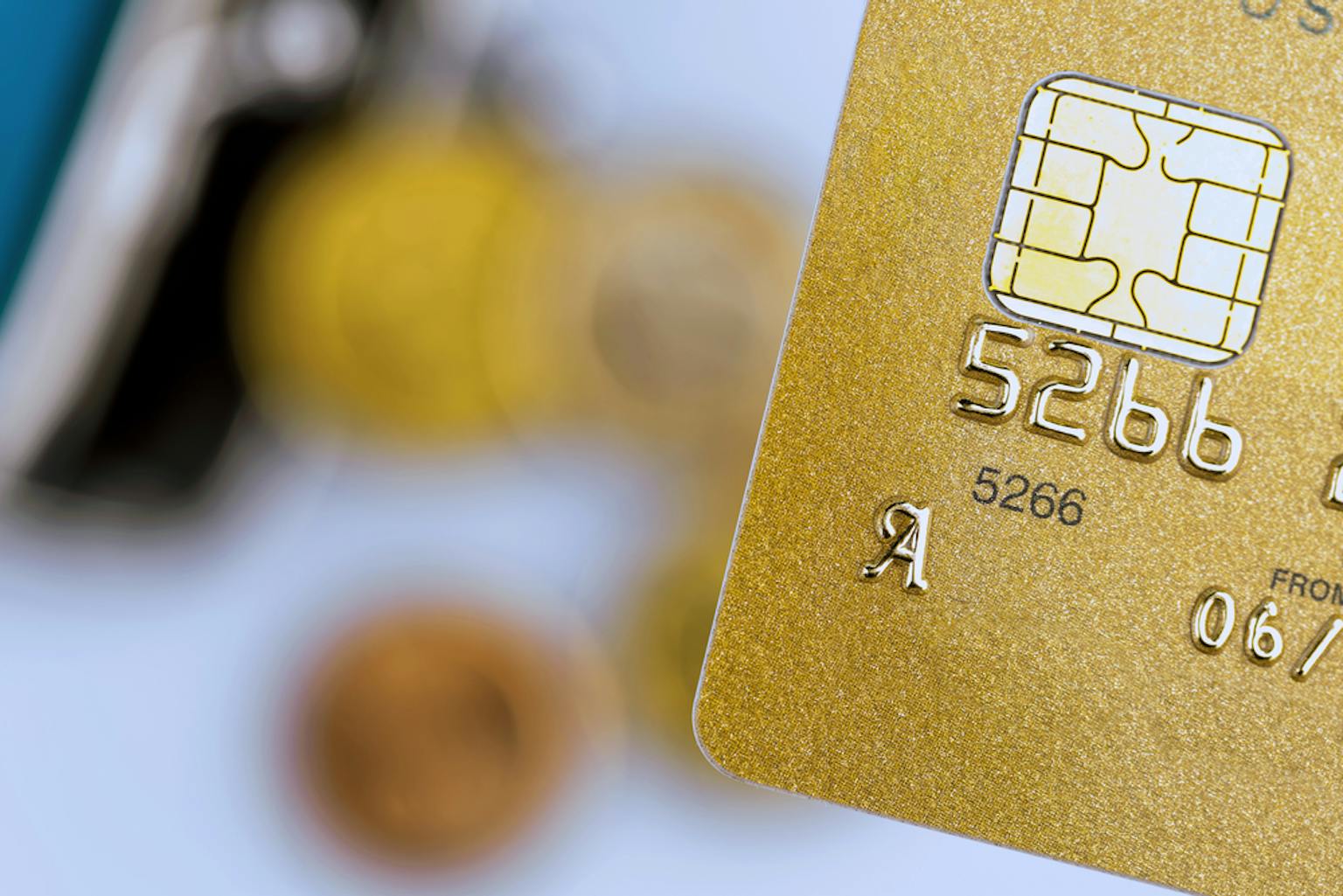
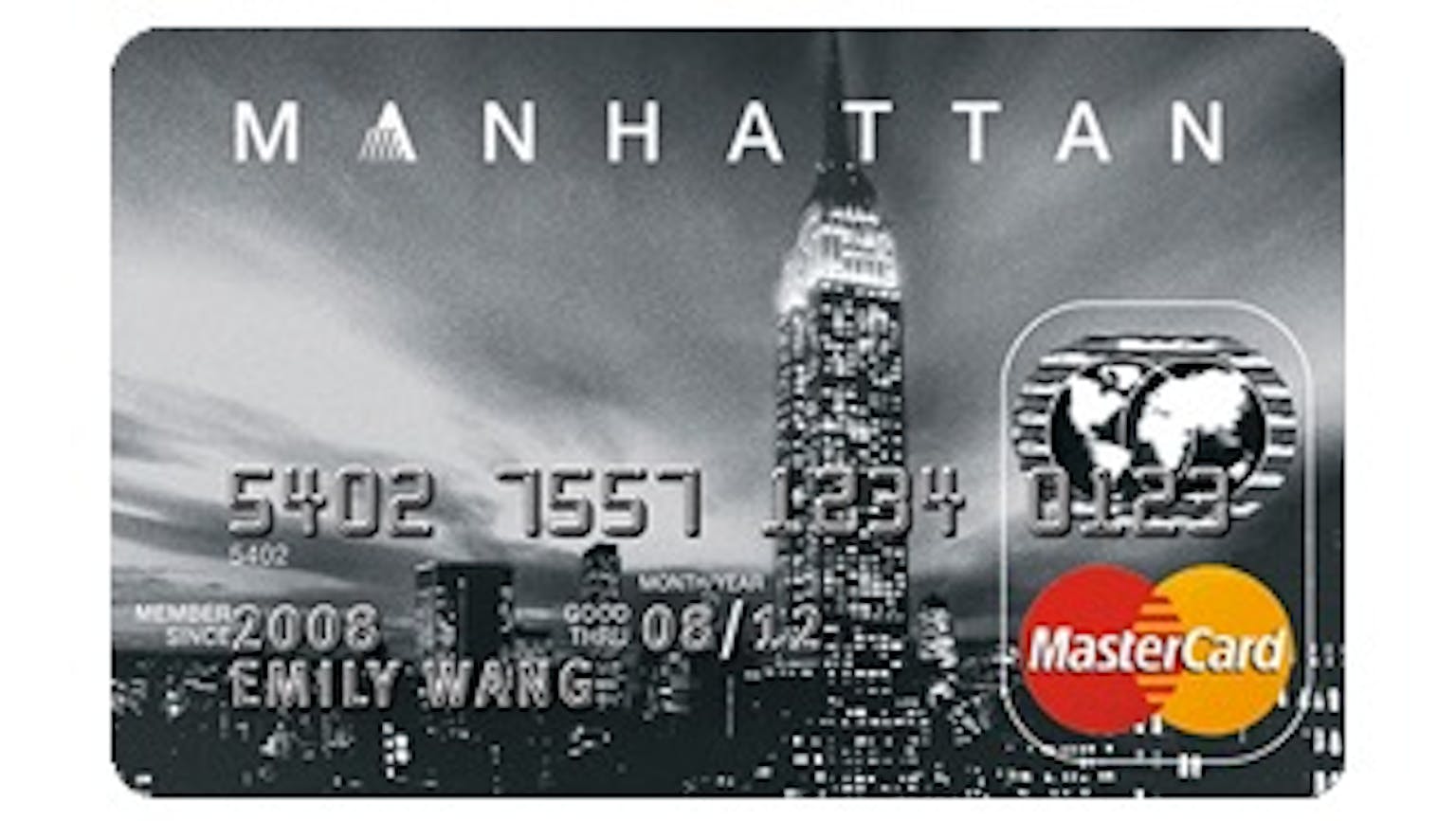
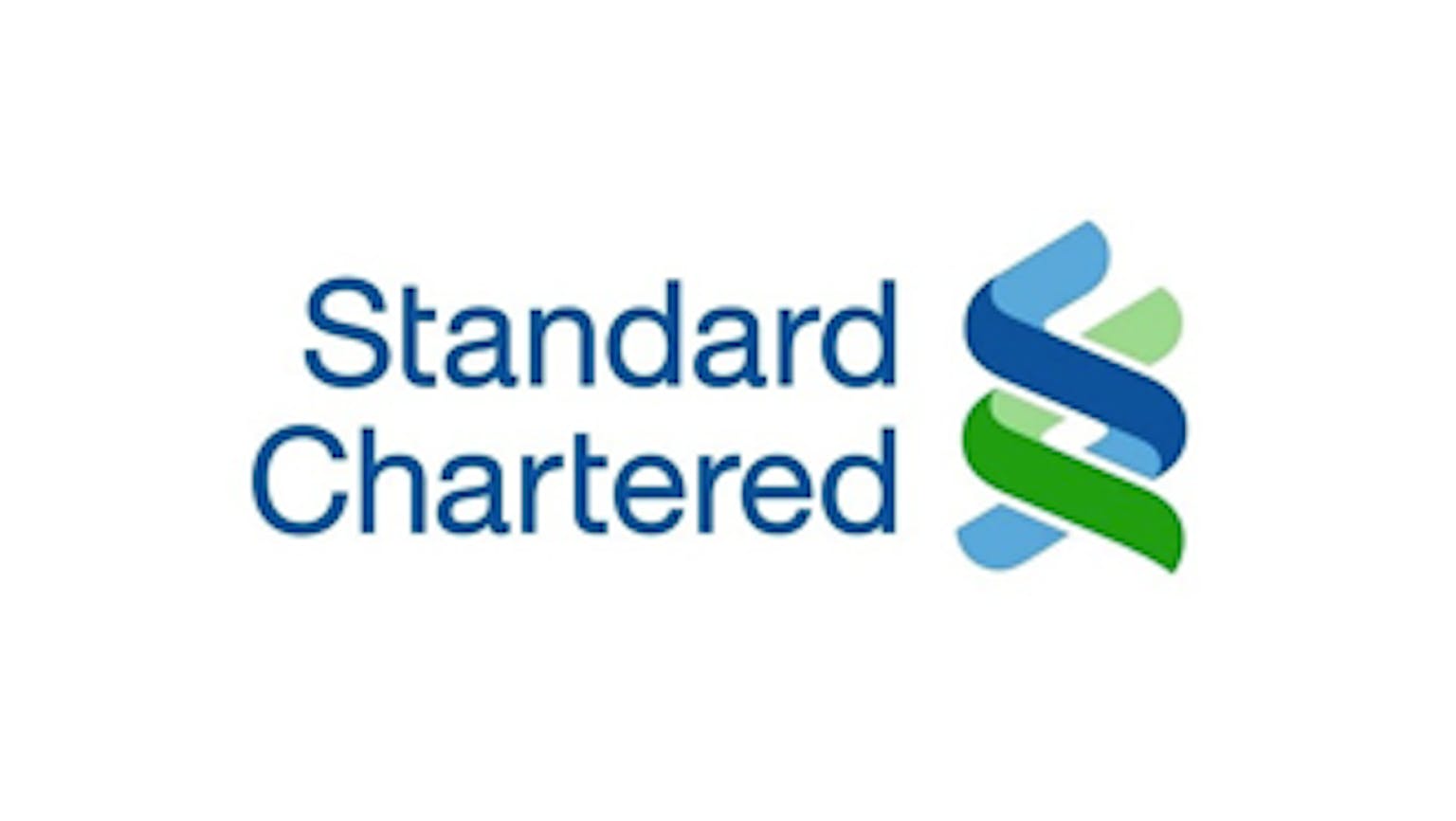
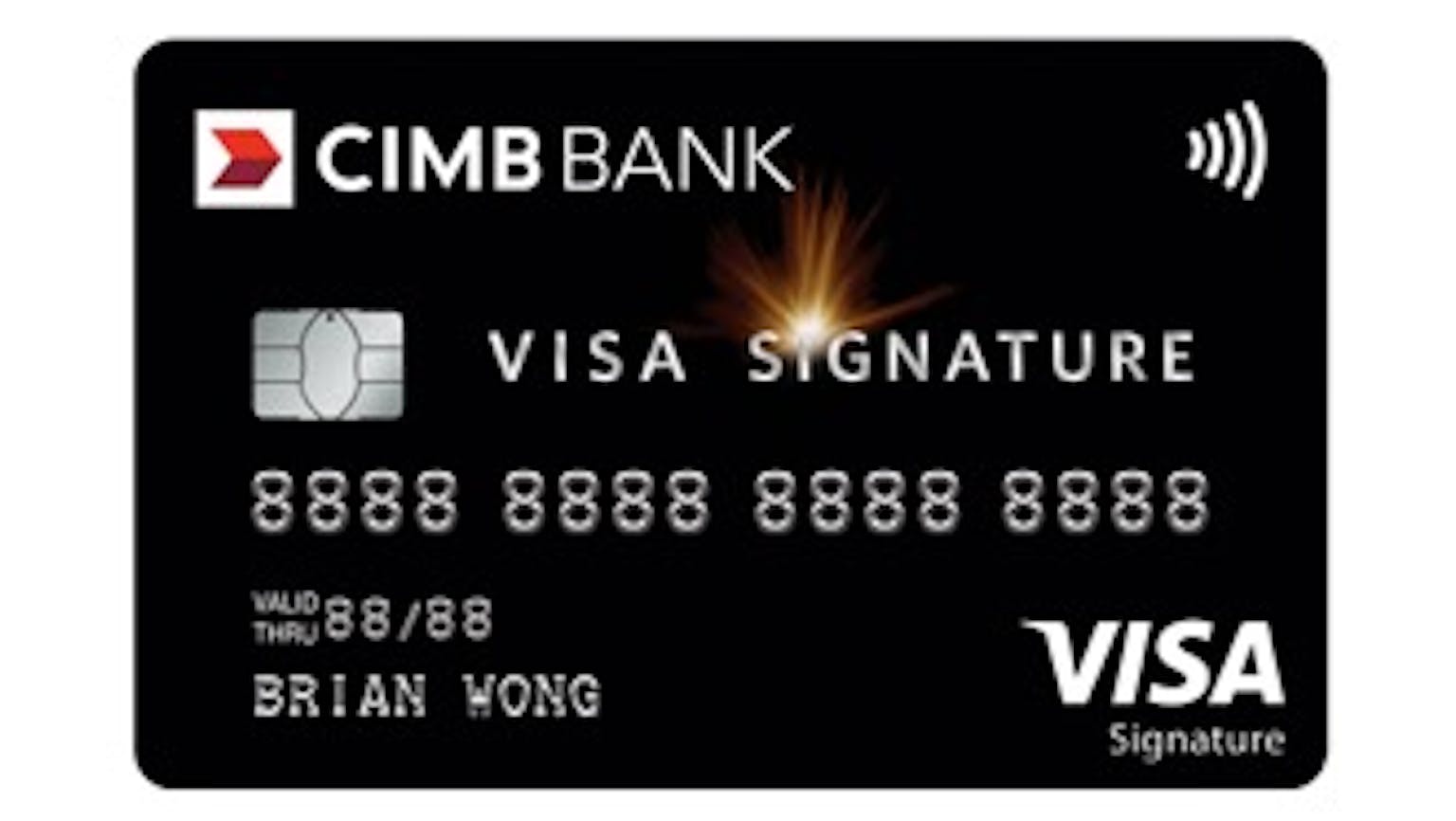
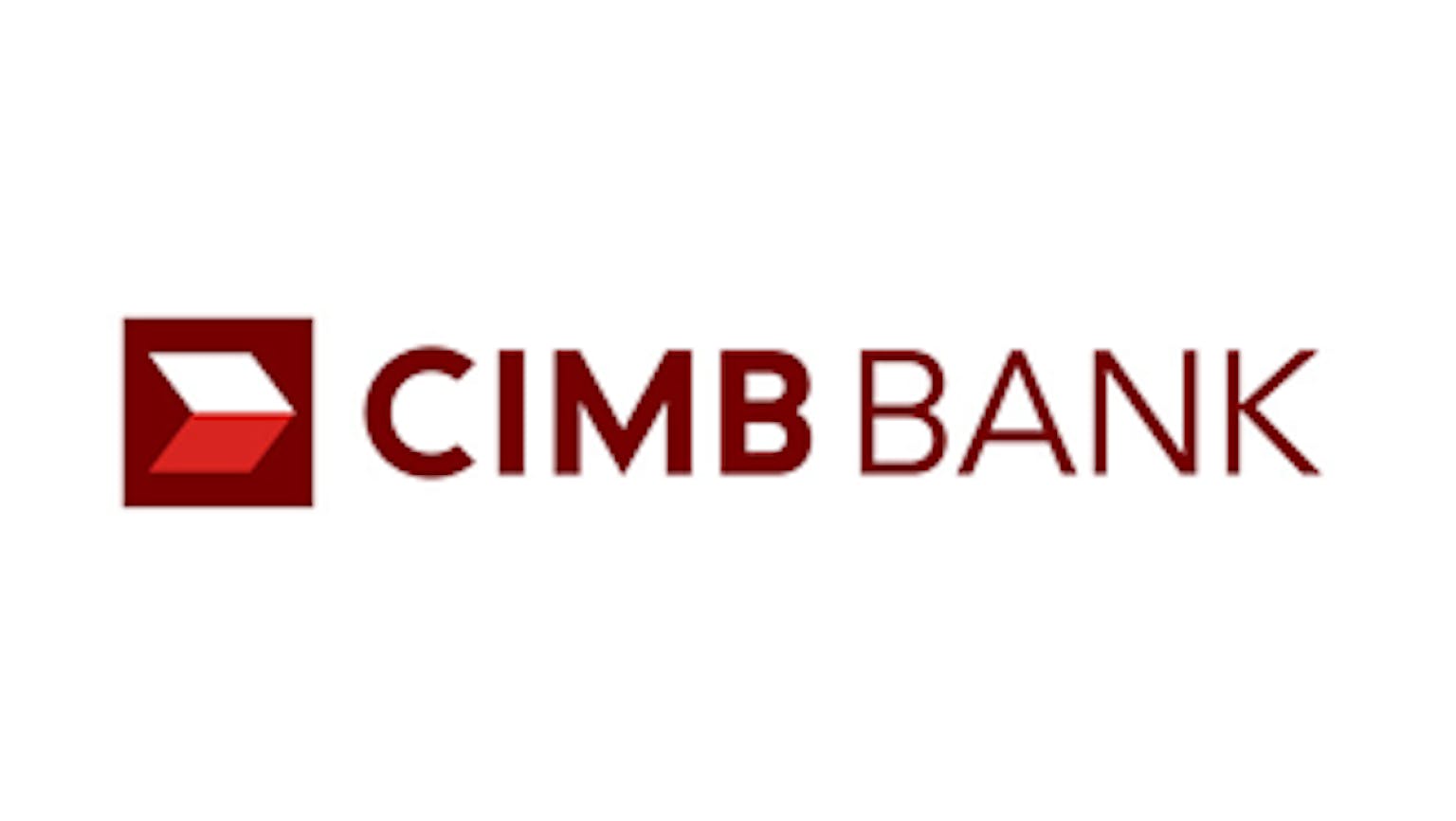
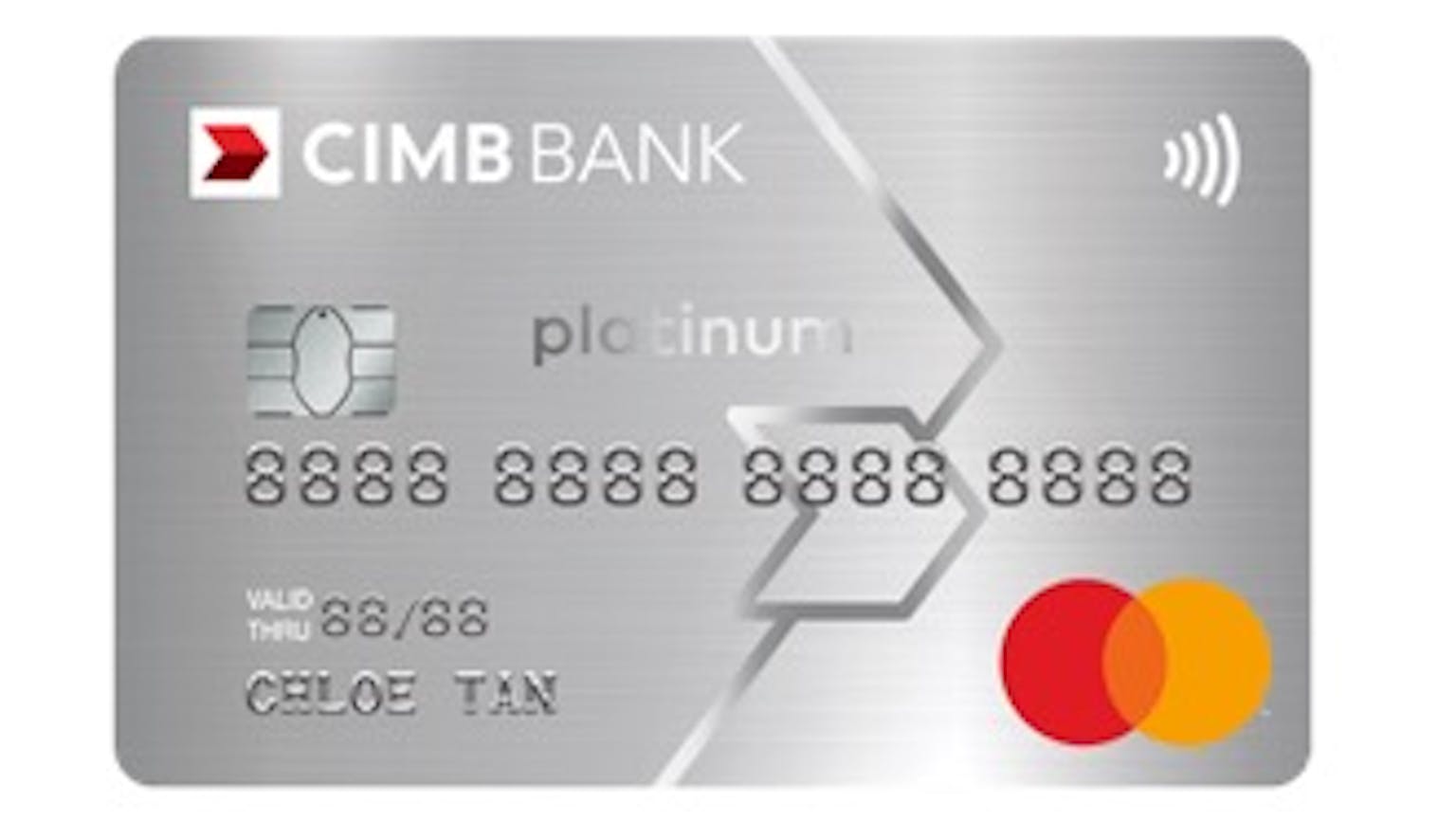
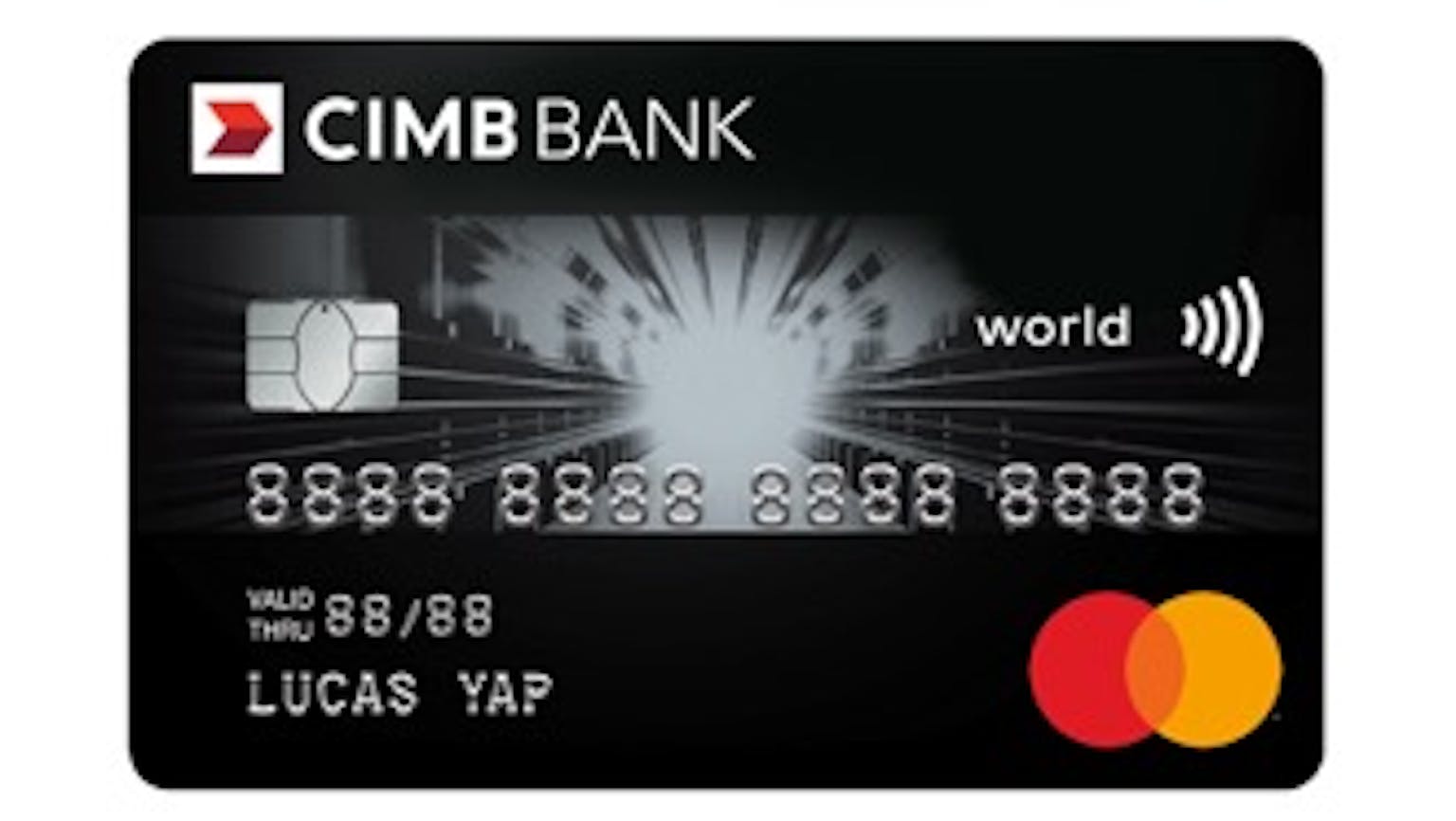
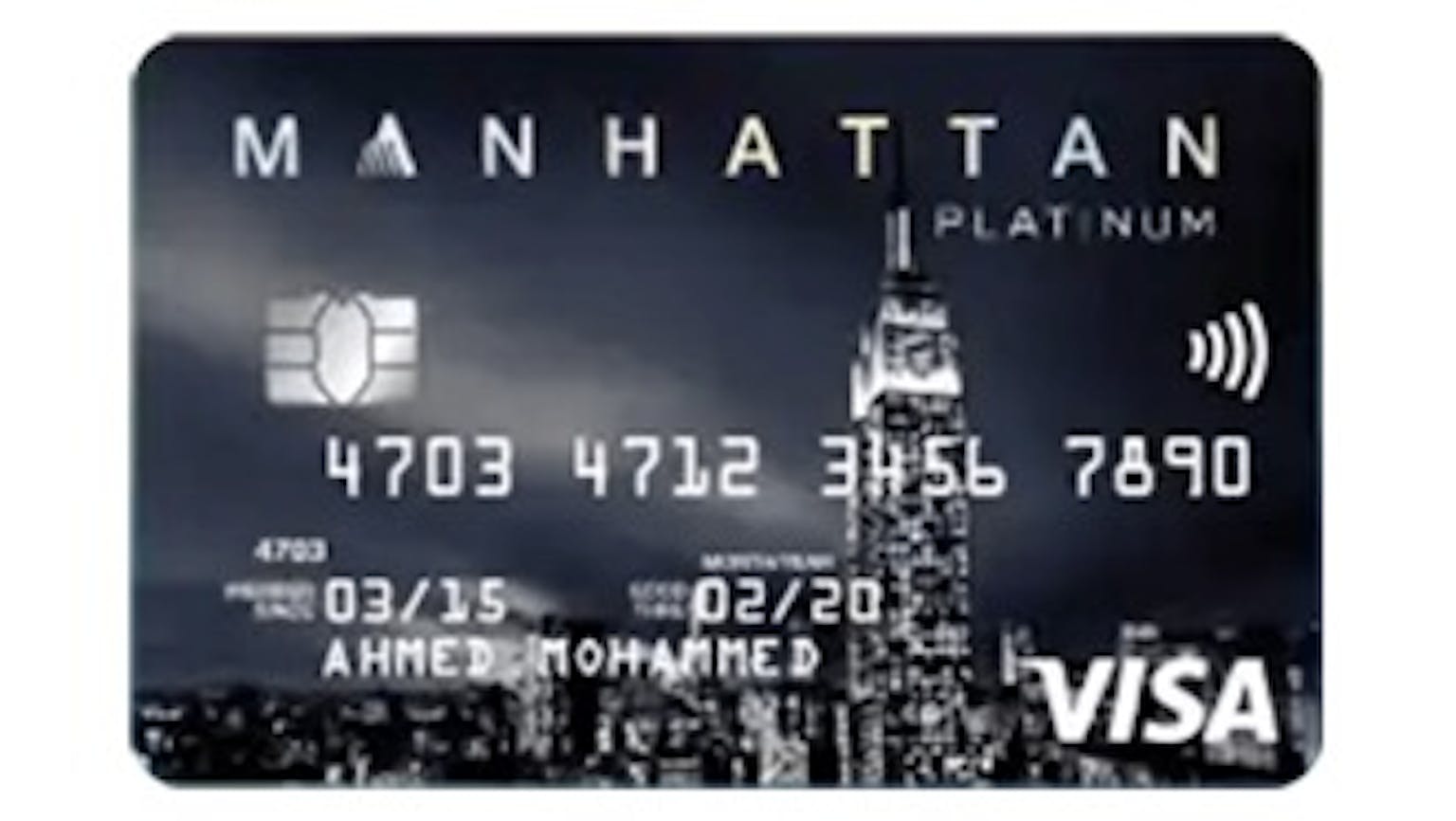
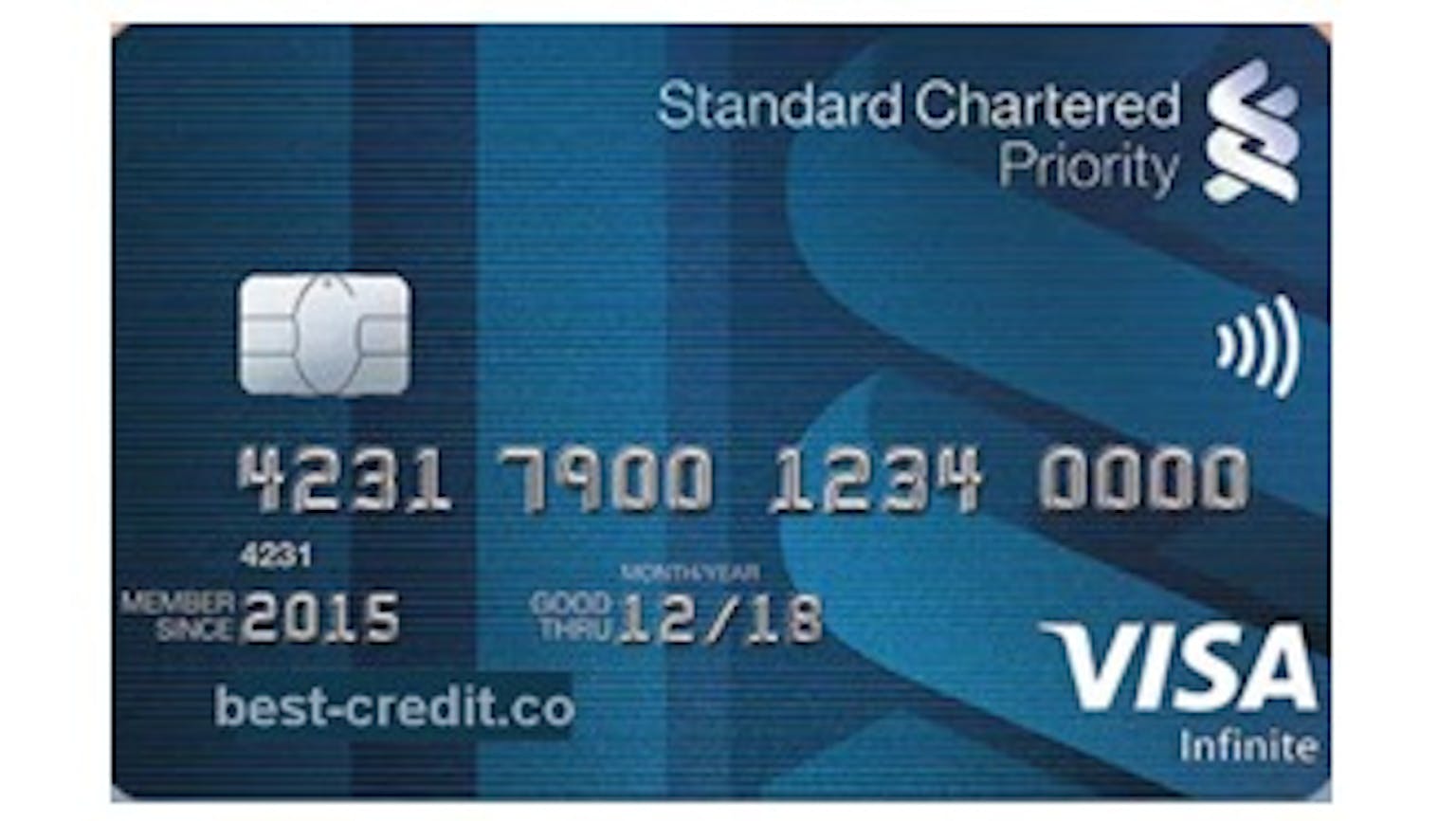

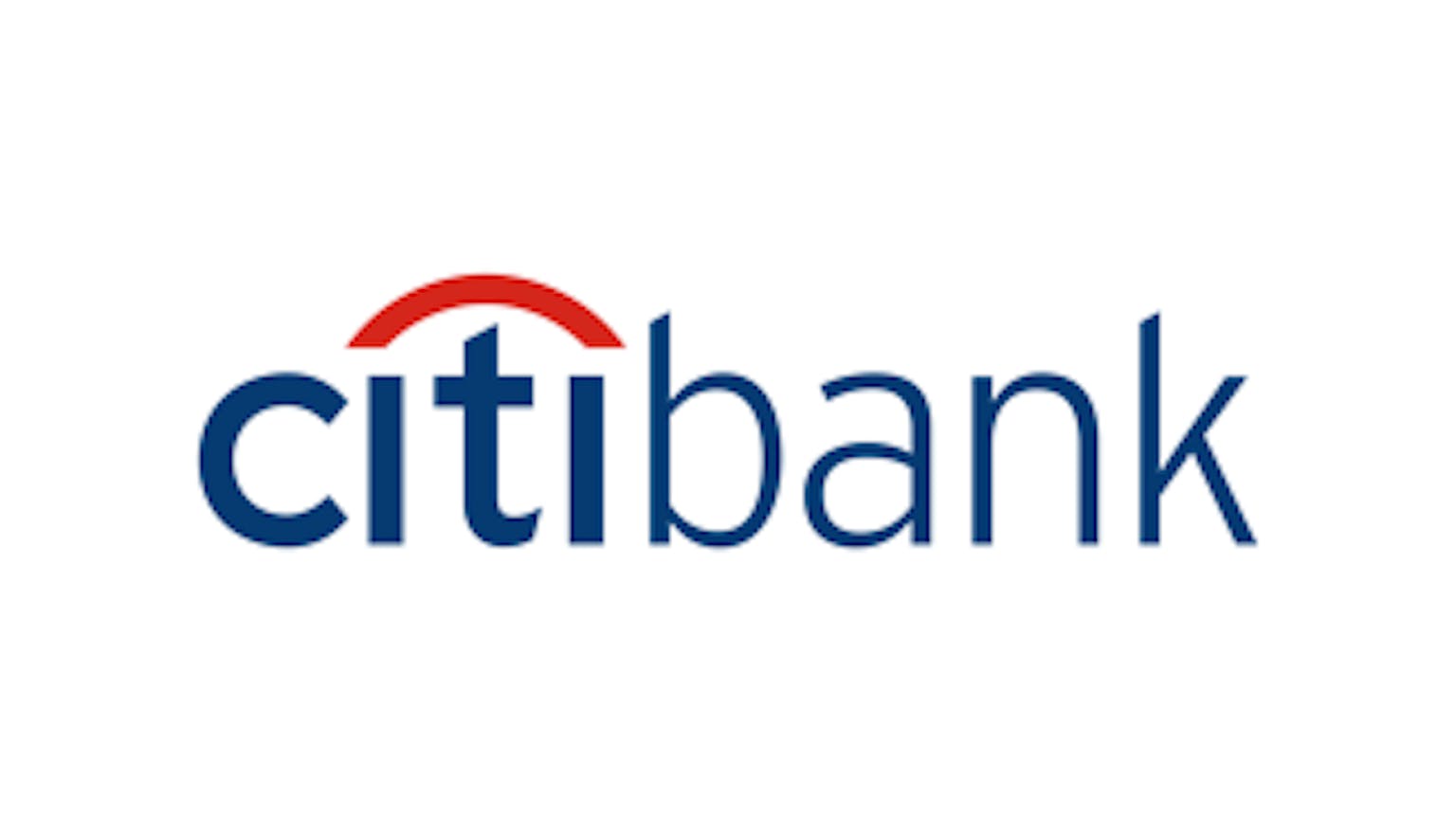
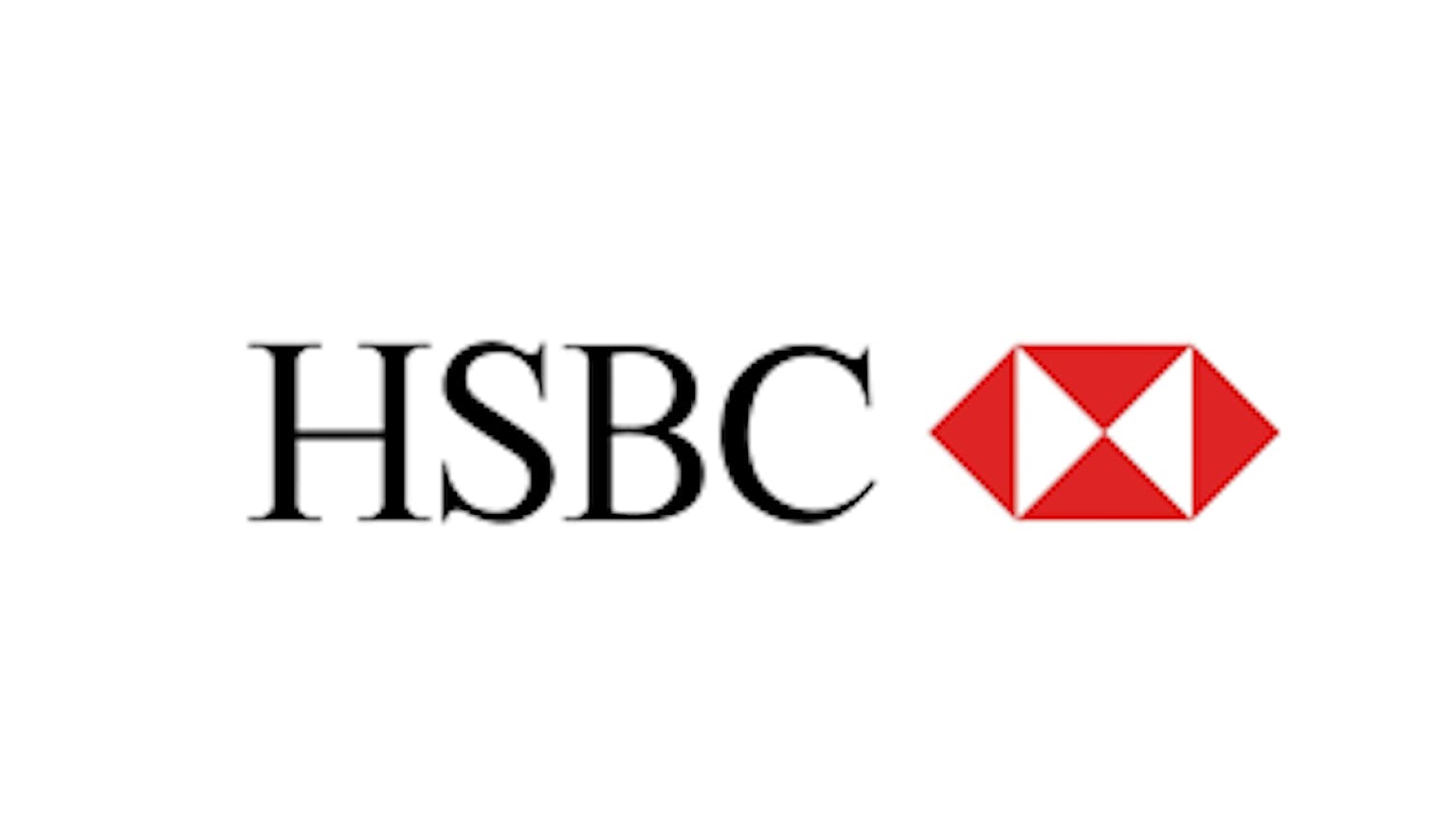
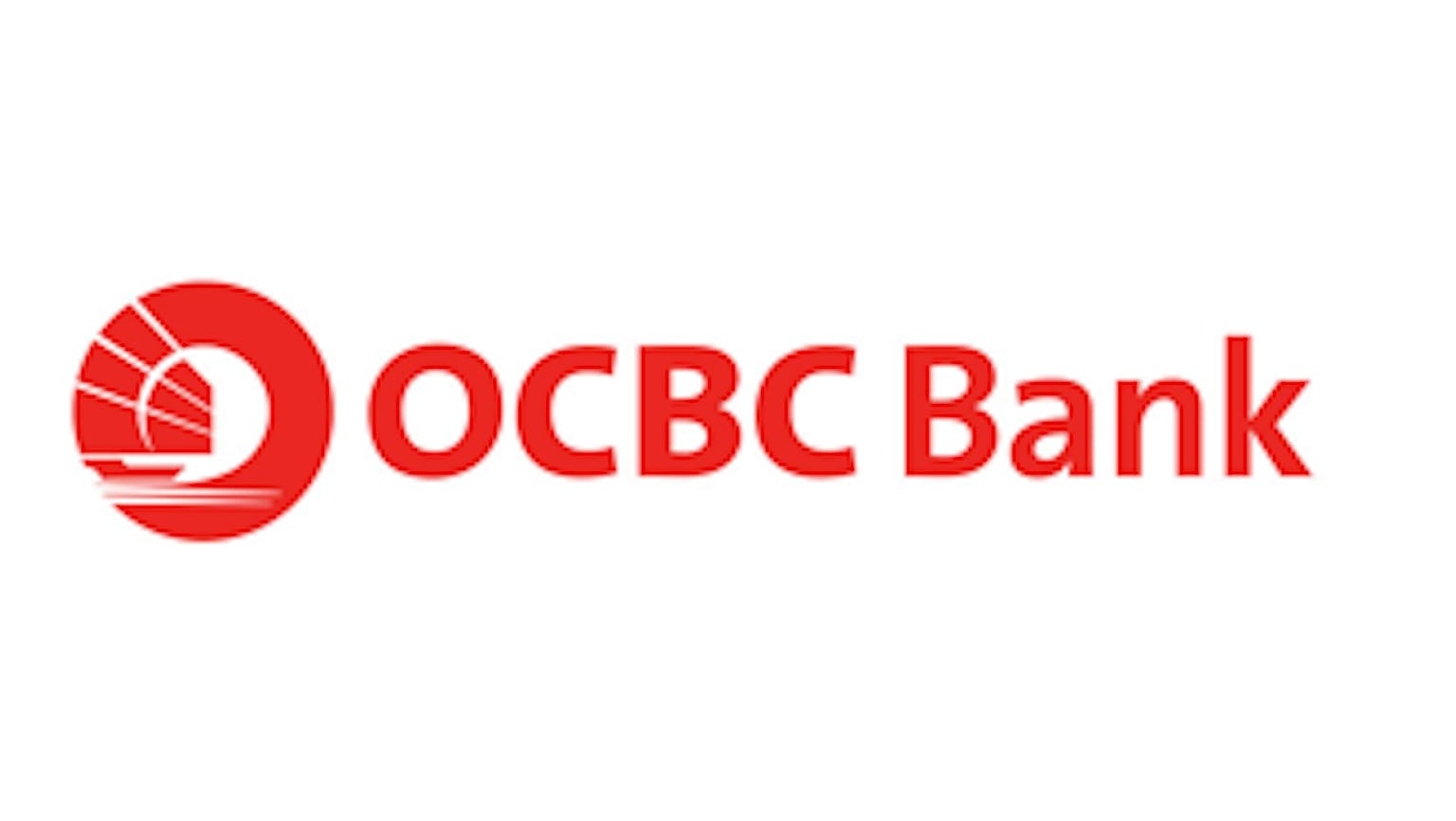
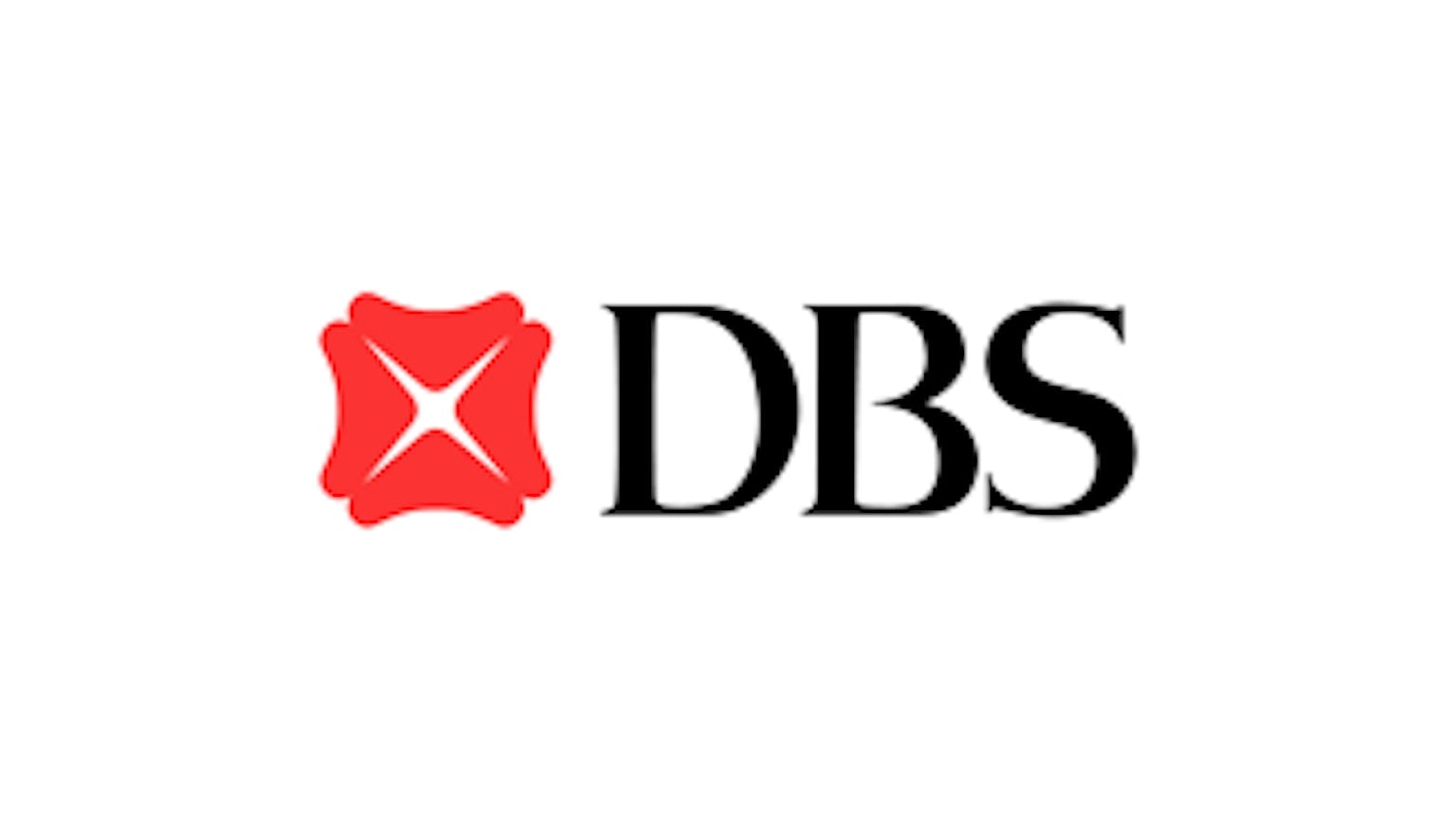

Please leave your knowledge and opinion!